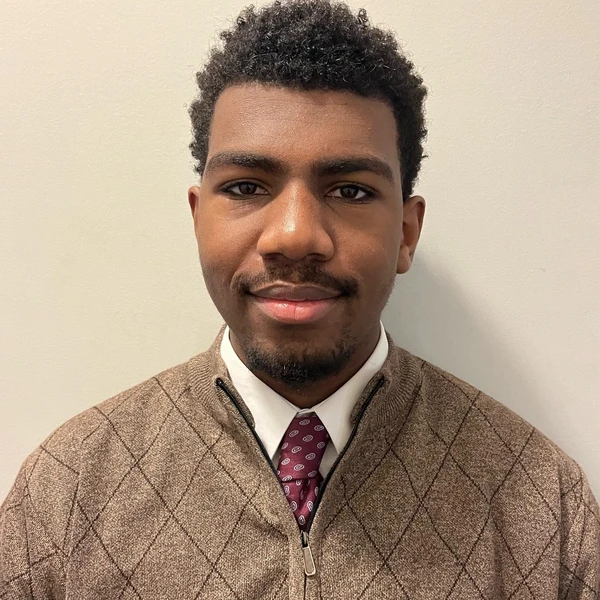
Hobbies and interests
Acting And Theater
Mock Trial
Artificial Intelligence
Coding And Computer Science
Swimming
Social Media
Reading
Academic
Adult Fiction
I read books multiple times per month
Chance Hicks
113
Bold Points8x
Nominee7x
Finalist4x
Winner
Chance Hicks
113
Bold Points8x
Nominee7x
Finalist4x
WinnerBio
My first semester is complete, with 4 A's and 1 B, which means I'll do better next time. But I am here to update my profile in order to say: thank you. Bold Scholarships have profoundly benefited my college experience, not only financially, but also emotionally and mentally. Before receiving the scholarship, I never truly believed I could win. For the first time, the constant anxiety and worry about whether I could afford to stay in school began to lift.
Scholarships have given me the freedom to fully experience college without the heavy burden of financial stress. Instead of constantly worrying about tuition, books, or debt, I can focus on my education, personal growth, and involvement on campus. That peace of mind has allowed me to perform better academically and engage more deeply in opportunities that prepare me for my future.
It is humbling to realize that some people and organizations genuinely want to support students like me. These Donors' investment in students can change the course of someone’s life. Their support has made it possible for me to continue my education with confidence and hope.
I am deeply grateful for the opportunity and will never forget the impact it has had on my journey. These scholarships have inspired me to give back one day and support future students who, like me, once doubted whether college was even possible.
My Computer Science degree, AI, CyberSecurity will help that ten fold.
Education
University of North Carolina at Charlotte
Bachelor's degree programMajors:
- Systems Engineering
- Computer Science
Minors:
- Drama/Theatre Arts and Stagecraft
Miscellaneous
Desired degree level:
Bachelor's degree program
Graduate schools of interest:
Transfer schools of interest:
Majors of interest:
- Computer Science
- Engineering, Other
- Computer and Information Sciences, General
- Computer and Information Sciences and Support Services, Other
- Arts, Entertainment, and Media Management
- Drama/Theatre Arts and Stagecraft
Career
Dream career field:
Technology
Dream career goals:
Computer Engineer, AI, Cyber Security
Grocery Manager in training
Harris Teeter2025 – Present1 yearManager
Chick-Fil-A2023 – 20252 years
Sports
Track & Field
Varsity2021 – Present5 years
Awards
- yes
Research
Accounting and Computer Science
Hendersonville High school — Creator2025 – 2025
Arts
HHS
Theatre2023 – 2025HHS
Dance2024 – Present
Public services
Volunteering
NC Scholar — Tutor2024 – 2025Volunteering
Religious — member2015 – Present
Future Interests
Volunteering
Philanthropy
Entrepreneurship
Julius Quentin Jackson Scholarship
In a world full of challenges, I view education as a hope and empowerment. Reflecting on my life and circumstances, I feel compelled to share my story and the reasons why I am applying for this scholarship. Coming from a low-income household and having endured the abandonment of my biological parents, I have not only overcome these adversities but also dedicated myself to supporting those around me and contributing to my community.
Despite the hurdles I have faced, my commitment to pursuing higher education has remained steadfast. This scholarship would alleviate the significant financial strain on my family, allowing me to focus on my studies rather than worrying about how to afford my education. For me, it represents not just financial assistance but also a lifeline to achieving my dreams and unlocking my potential.
From the age of 15, I have taken on work responsibilities to ease the burden on my guardian and help support my family. For over two years, I have held a part-time job, juggling work and school while remaining reliable and committed—I have never missed a day of work or arrived late. This is something I take pride in, as it demonstrates my dedication and responsibility. My income has contributed directly to household expenses, and I have worked diligently to save for college, knowing that my legal guardianship will end when I turn 18 in June. Unfortunately, due to my guardian’s disability, she will be unable to financially assist with my college expenses. This reality has driven me to take ownership of my future by seeking scholarships and other opportunities to fund my education.
Receiving this scholarship would not only make attending UNC Charlotte possible but would also give me the chance to focus fully on my academic and personal growth. By investing in my education, you are also investing in the future I aim to build—a future in which I will, in turn, invest in others. It is my goal to use the opportunities I have to uplift those around me and to create a positive ripple effect in my community and beyond.
In conclusion, I humbly submit this statement as part of my scholarship application. I am not just asking for financial assistance; I am seeking the opportunity to further cultivate my potential, contribute meaningfully to society, and set an example for others. Thank you for considering my application and supporting students like me who are working tirelessly to turn their dreams into reality.